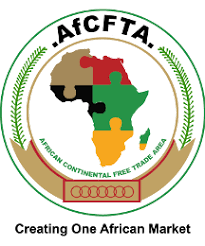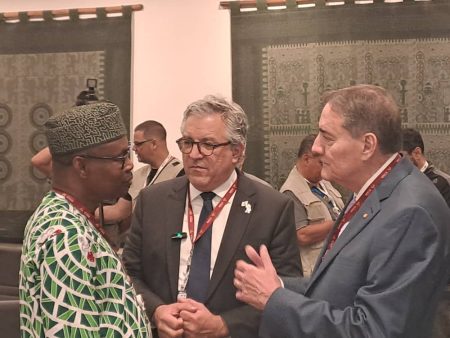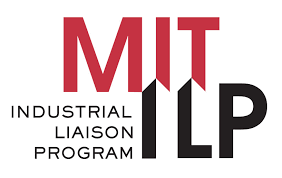 Vincent Toritseju
Vincent Toritseju
Abuja — Following Nigeria’s moves towards the implementation of the African Continental Trade Agreement, AfCFTA, the Presidency has projected an annual $1.2billion export and service oriented deliverables within and outside the Continent.
Speaking at the ongoing conference with theme ‘‘The Role of the Transportation Sector on the African Continental Free Trade Area AfCFTA, Francis Anatogu, Senior Special Assistant to the President on Public Sector Matters and Secretary, National Action Committee on AfCFTA said one of the major aim of the government is to grow production and export capacity of every state to a minimum of $1.25bn per annum by developing industry/service cluster(s), value chain(s) and ecosystem(s) around specific products and/or services.
Anatogu also said that it was for this same reason that the Federal Government is doing all it can to conclude ongoing transport projects and upgrade of infrastructure to position Nigeria as a hub in the sub-region; and reduce freight per ton with concomitant effect on prices of goods and services.
According to the Presidential Aide, some of the project includes the completion of inland dry ports, Lekki Deep Sea Port, Ibom Deep Sea Port Projects and NIMASA’s Deep Blue project, conclusion of the Abidjan-Lagos Trade and Transport Facilitation Project (ALCO), including completion of the SEME-Lagos Road.
Others are complete rehabilitation of projects on sections of the Lakaji corridor, dredging of Calabar port, dredging and reinforcement of riverbanks on 1,000km of inland waterways, completion of on-going rail connection to Lagos Port Complex, Apapa, development and harmonization of operating and safety standards on signal and communications protocols, Install Automatic Train Protection (ATP) systems, data sensors (P-way guiding integrity, vehicle integrity, train circulation system integrity) on 100% on the Nigerian rails.
He said; ‘‘Fast-track the 25- year strategic rail vision for Nigeria to change from narrow to standard gauge, strengthen the curves and gradients of the existing narrow gauge and professionalize the management structure to ease cargo evacuation, eliminate road congestion and improve hinterland connectivity.
‘‘Building exchange transfer yards and marshalling yards to facilitate cross border handling and Installing Automatic Train Protection (ATP) systems, data sensors (P-way guiding integrity, vehicle integrity, train circulation system integrity) on 100% on the Nigerian Railway.
Fast tracking the establishment of other inland ports and completing the Wagon Assembly Plant at Kajola, Ogun State for local production of wagons.



